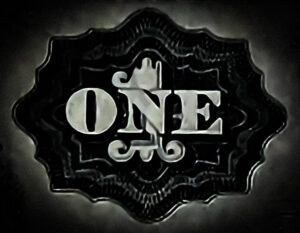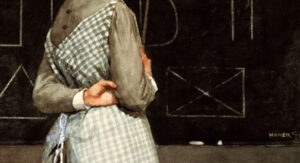Understanding Suffering in Times
of Pandemic (or Anytime)

A Review of C.S. Lewis' Classic The Problem of Pain

“In the world you will have tribulation.” (John 16:33) It is an odd statement to come from a messiah who was prophesied to overturn the tribulation and suffering of the broken and fallen world. But to think that Jesus came to eradicate all suffering is to misunderstand Christian theology. Since the earliest times of Christianity, suffering and suffering well have been respected and revered. It is written into the DNA of Western Civilization. First, in the Jews who knew all too well the sufferings of the world, and took pride in embracing it — and never thought of it as evidence of a lack of God’s providential care— and later in the Christians who saw a redemptive participation in this fallen, not yet perfected world.
But in modern times, many skeptics and coffee-shop intellectuals view suffering as meaningless at best, and at worst as evidence that there is no God, or that if there is one he is evil. Yes, in the world there will be tribulation, and we cannot escape it; on this gospel point, at least, skeptics and believers can fervidly agree. And despite our best attempts to avoid it, ignore it, or to curse it, things like global pandemics that kill more than 750,000 people jar us into a sobriety about the very real disconnect between our aspirations for permanence and the realities of suffering and death. Despite increased wealth, extended life spans, and technological marvels that reduce suffering considerably (imagine basic surgery without anesthesia), there is still no shortage of suffering to be had.
As families, churches, and nations continue to struggle through this dark, pandemic era, countless millions of us are no doubt asking the questions that we always ask in such times: Why would an all-good and all-powerful God allow us to suffer? What is one to do in the face of immense suffering, communal or personal? How are we to make sense of the suffering that, despite our best efforts, always comes, eventually? These are real questions, hard questions, tenacious questions; but they are questions we should not shy away from. And, thankfully, CS Lewis, the great British author and lay theologian, did not shy away when he was invited to write a book addressing them during the early days of World War II. Titled simply The Problem of Pain, the book is one of the most lucid treatments of the matter to be found in modern literature. The ideas Lewis presents are both insightful and comforting, especially in days such as these. And he definitively lays to rest the nihilistic concerns of our coffee-shop skeptic friends.
“[W]hen pain is to be born, a little courage helps more than much knowledge, a little human sympathy more than much courage, and the least tincture of the love of God more than all.”
Clive Staples Lewis was, in 1940, not yet the revered author that he is today. It would be another year before he would give a series of popular Sunday addresses on BBC radio that would later become the basis for Mere Christianity. Another 10 years until he would imagine the Chronicles of Narnia. In 1940, he was a fellow and tutor of English at Magdalen College, Oxford, a published author of a few books, and a member of the recently inaugurated group of writers and thinkers known as the Inklings. He felt entirely incapable of providing a treatise on suffering especially as Great Britain was being cast into the throes of a long and bloody war. Despite his reluctance, and perhaps because of this humility, his work remains as salient today as it was 60 years ago.
In the opening salvo, CS Lewis provides a personal account of his previous atheism, and a strong argument for and against using the evidence of pain and suffering as grounds for rejecting the existence of God. He continues to explain the origins of religious belief in general, and Christianity in particular to frame the question of pain and suffering within the sister sciences of philosophy and theology—though one need not be a philosopher or theologian to understand his approachable writing.
The opening chapters discuss the problem of pain and suffering as tied to the problem of evil. If God is all good and all-powerful then he would use his power to eliminate evil and the derivative pain and suffering it causes. Since evil is allowed and we experience pain and suffering, God is either not all-good, or not all-powerful. This argument has been successfully contested by many others, ancient and contemporary, but Lewis’ treatment uses a type of reverence for the irreverent that is refreshing. He follows the opposing arguments to their natural conclusions with patience and wit and presents the gift of free-will as precisely a gift, one that in the end we must take responsibility for.
“We can, perhaps, conceive of a world in which God corrected the results of this abuse of free-will by His creatures at every moment: so that a wooden beam became soft as grass when it was used as a weapon, and the air refused to obey me if I attempted to set up in it the sound waves that carry lies or insults. But such a world would be one in which wrong actions were impossible, and in which, therefore, freedom of the will would be void.” (16)


Midway through the book, he enters into the struggles of human pain. He takes this step only after presenting the basic apologetic for the Christian faith: that is, there is a God, and it is not us, and though we are fallen and sinful, God comes to save us. In this context he teases out the type of pain and suffering that is meant for our good. The normal struggles that are as discipline to chasten and form us. And the type of pain which must be, well, suffered through. “It is men, not God, who have produced racks, whips, prisons, slavery, guns, bayonets, and bombs; it is by human avarice or human stupidity, not by the churlishness of nature, that we have poverty and overwork. But there remains, none the less, much suffering which cannot thus be traced to ourselves.” (55) It is only in these later chapters that Lewis gets more prescriptive. What are the fruits of living the Gospel? Certainly, less suffering of one nature, those things that are caused by our own “avarice and stupidity”, and more of another, those things caused by others, and still yet more remote, weather and pandemic.
“It is men, not God, who have produced racks, whips, prisons, slavery, guns, bayonets, and bombs; it is by human avarice or human stupidity, not by the churlishness of nature, that we have poverty and overwork. ”
The most oft-quoted line of the book is: “God whispers to us in our pleasures, speaks in our conscience, but shouts in our pains: it is His megaphone to rouse a deaf world.” But this is only part of the story. God shouts to gather our attention, but also provides the sweet relief that comes from knowing that he is with us in our suffering and it need not be meaningless. Lest we think that pain is only pedagogical, pain is also redemptive and is part of his plan for our conversion. Like our Jewish forefathers in faith, suffering is not sought out, it is not a good in and of itself. “What is good in any painful experience is, for the sufferer, his submission to the will of God, and, for the spectators, the compassion aroused and the acts of mercy to which it leads.” (69) That is, a reminder of our true nature, and true identity as sons and daughters of God in this “fallen and partially redeemed universe.” (69)
In the end, following the final chapters on the ultimate suffering, Hell, a few notes on Animal Pain, and a discussion about the alleviation of suffering in Heaven, Lewis provides a cogent and challenging examination of tribulations and pains of this life. Rather than provide a prescription to solve the scandal, he provides a context for why the scandal should be one at all. “In a sense, it [Christianity] creates, rather than solves, the problem of pain, for pain would be no problem unless, side by side with our daily experience of this painful world, we had received what we think a good assurance that ultimate reality is righteous and loving.” (8) Some twenty years later when his beloved wife, Joy Davidman, died of cancer after only three years of marriage, the theoretical examination of suffering in The Problem of Pain became tangible. Upon that episode, he wrote his second book on pain, A Grief Observed. As one Lewis biographer explained, “it takes courage to live through suffering; and it takes honesty to observe it. C. S. Lewis had both.”
If you are looking for a good book to read in the middle of the pandemic, or any crisis, or any time at all really, The Problem of Pain provides an astute reflection with helpful and illuminating insight into one of the most pressing questions of human life..
“In the world you have tribulation, but take courage; I have overcome the world.” (John 16:33)





















